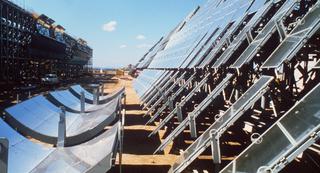
The idea of reflecting sunlight into space to cool the Earth is controversial, but the Biden administration’s support for further research and multilateral cooperation is welcome.
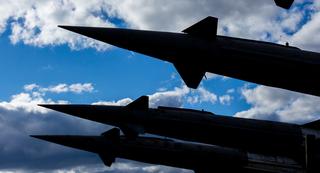
Climate change stands to impact each leg of the U.S. nuclear triad in different and increasingly serious ways. Given the high-stakes nature of the nuclear enterprise, the Department of Defense and other key stakeholders must better prepare for, mitigate, and adapt to these climate challenges.

Beijing is leading the way in AI regulation, releasing groundbreaking new strategies to govern algorithms, chatbots, and more. Global partners need a better understanding of what, exactly, this regulation entails, what it says about China’s AI priorities, and what lessons other AI regulators can learn.
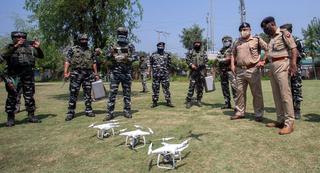
Over the last three years, drone intrusions along the India-Pakistan International Border have increased. This commentary describes the nature of this new threat and outlines countermeasures deployed by the Indian security establishment so far.
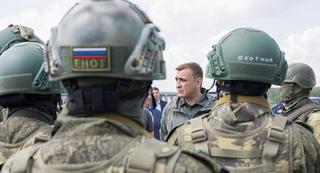
Putin’s former bodyguard and current Tula governor Alexei Dyumin is eternally tipped for a position in the federal government, yet is still waiting after seven years.
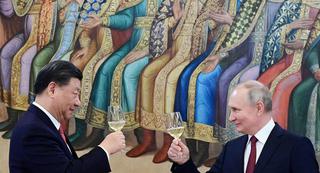
China may have the opportunity to turn Russia into its vassal, but it has no compelling reason to do so.
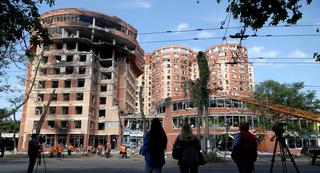
“We need to stop going to funerals, stop going crazy, stop being afraid of missiles.”
Although the geopolitical rationale for the arrangement is understandable, the parties have failed to come to terms with its core problems.
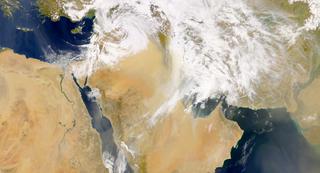
Climate change in the Middle East will amplify preexisting vulnerabilities stemming from conflict, displacement, marginalization, and corruption, while also creating new risks. Governments in the region will need to adopt more inclusive reforms as part of their climate adaptation strategies.
What should we expect from the NATO summit in Vilnius?
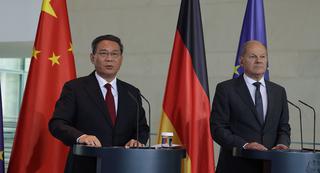
Washington can’t decouple from China without Europe’s help, while China hopes to soften Europe’s stance and has focused its diplomacy there. This has put Brussels in a pivotal position.

Plentiful resources contribute to long-term success if channeled to the development of institutions, but Azerbaijan, like many other autocracies, is instead using them to burnish its image abroad and cement the status quo.
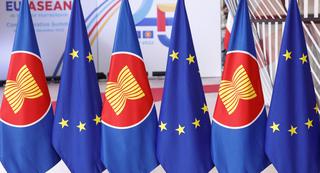
The EU and ASEAN have diverging priorities in climate, security, technology, trade, and democracy. Stronger cooperation in these fields would enable the two blocs to tackle shared challenges and pursue common interests.

The uprising has highlighted a crisis of management in Russia’s political system and the huge contradiction within the Russian armed forces. But it looks like the Kremlin is not intending to take any measures in response, apart from dictating how state propaganda should frame the event
As the United States adapts to rising strategic competition with China, it has sought to strengthen ties with New Delhi as a key partner in the Indo-Pacific.
The EU should develop a comprehensive and sustainable strategy to address the issues surrounding European companies’ assets in Russia. Such a strategy should encompass legal, political, and economic considerations with the aim of safeguarding the interests of these firms.

Lebanon's food crisis—the result of an unequal system that deprives local farmers of agency and neglects the environment—calls for the country to seek a new path toward food justice.
Xi Jinping has no other option than to support Vladimir Putin—or someone like him
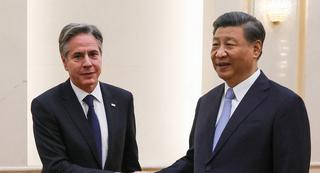
Even though Beijing is competing, it doesn’t want to define bilateral relations in competitive terms.
Amid the economic decoupling underway between China and the United States, semiconductor supply chains are recalibrating. Given these geopolitical shifts, where will India and other countries fit into a world with distinct tech blocs?
Stay connected to the Global Think Tank with Carnegie's smartphone app for Android and iOS devices